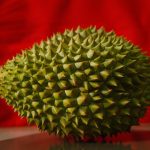Wearing polyester can sometimes make me smell bad because it traps sweat and oils, creating a perfect environment for bacteria to grow and cause persistent body odor. The fabric's moisture-wicking properties play a role in this. If you're wondering why you smell bad in polyester, it's likely due to the way it interacts with your body's natural processes.
Table of Contents
Key Takeaways
- Bacteria thrive on polyester fabric, breaking down sweat into smelly molecules.
- Polyester retains skin oils, creating a cozy environment for bacterial growth.
- Odor control technology in polyester fights body odor but may lead to persistent odors.
- Polyester's hydrophobic nature traps sweat, aiding bacterial growth and odor persistence.
- Natural fabrics like cotton inhibit bacterial growth, reducing body odor in comparison to polyester.
Polyester Fabric and Body Odor
Wearing polyester can lead to body odor due to the bacteria that thrive on this synthetic fabric breaking down sweat into smelly molecules. Unlike sweat, which is actually odorless, the real culprits are the bacteria on our skin and the polyester clothing we wear. These micrococci bacteria love polyester, creating a breeding ground for them to flourish and contribute to that unpleasant odor we sometimes notice.
Polyester clothing tends to harbor more bacteria than natural fibers like cotton, making it more likely to develop that funky smell. Research has even shown that compared to polyester shirts, cotton shirts are less smelly and support lower bacterial growth. The issue with polyester is that once odors develop, they can be harder to get rid of, especially in areas where sweat tends to accumulate.
Moisture-Wicking Properties of Polyester
So, let's talk about how polyester interacts with sweat.
Polyester has this cool ability to wick moisture away from your skin, which keeps you dry.
However, this quick-drying feature can sometimes backfire, creating a cozy environment for smelly bacteria to thrive.
Polyester and Sweat
When wearing polyester, its moisture-wicking properties efficiently draw sweat away from my skin. This helps in keeping me dry and comfortable during physical activities. However, the quick evaporation of sweat on polyester can leave behind an oily residue, which may contribute to body odor issues. Additionally, polyester's moisture-trapping ability can create a favorable environment for odor-causing bacteria to thrive. The breakdown of sweat on polyester fibers by these bacteria can lead to persistent odors that are hard to eliminate. Understanding how polyester interacts with sweat and bacteria is essential in managing body odor problems while wearing polyester clothing.
| Pros | Cons |
|---|---|
| Efficient sweat-wicking | Oily residue may contribute to odor |
| Keeps skin dry | Moisture-trapping can aid bacteria |
| Comfortable during activities | Persistent odors can develop |
Odor Control Technology
Polyester's odor control technology harnesses its moisture-wicking properties to combat body odor caused by sweat and bacteria accumulation. Synthetic fibers like polyester are recognized for their capacity to draw moisture away from the skin, keeping you dry during physical activities.
However, this moisture-wicking feature can also trap sweat and skin oils within the fabric, creating an ideal environment for odor-causing bacteria to thrive. The quick-drying nature of polyester can contribute to the retention of skin oils, further promoting bacterial growth and persistent body odor.
Bacteria Build-Up in Polyester Clothing
I've noticed that my polyester clothes tend to hold onto odors more than my cotton ones.
It turns out that bacteria, like Micrococci, actually thrive on polyester because of its synthetic composition.
This bacteria build-up on polyester fibers can lead to persistent body odors that are challenging to get rid of, even after washing.
Bacteria in Polyester
In polyester clothing, bacteria tend to accumulate more rapidly than in natural fibers like cotton, leading to persistent odor issues even after washing. This happens because polyester fabric attracts and harbors bacteria, particularly Micrococci, more than cotton does. Here are some reasons why bacteria thrive in polyester:
- Polyester fabric's quick-drying nature allows it to accumulate skin oils, promoting bacterial growth.
- Bacteria build-up on polyester fibers sticks to odorous compounds more than on cotton, contributing to the smell.
- Opting for natural fabrics over polyester can help reduce bacterial build-up and minimize body odor.
Odor-Causing Microbes
When wearing polyester, the accumulation of odor-causing microbes is a common issue due to the fabric's tendency to attract and retain more bacteria compared to natural fibers like cotton. These odor-causing microbes, such as Micrococci, thrive in the synthetic environment of polyester, leading to persistent body odor.
Polyester's ability to trap sweat and oils provides an ideal breeding ground for these bacteria, resulting in the unpleasant smell that can be hard to get rid of. Sweat and odorous compounds adhere more strongly to polyester fibers than to cotton, exacerbating the problem.
Additionally, the quick-drying nature of polyester allows for oils from the skin to interact with bacteria, intensifying the development of body odor. Personal body chemistry plays a role in how strongly these odors manifest when wearing polyester.
Hydrophobic Nature of Polyester
The hydrophobic nature of polyester fabric creates an environment that promotes bacterial growth and leads to persistent odor issues when worn.
- Polyester's hydrophobic properties repel water and trap sweat, providing an ideal breeding ground for bacteria.
- The quick evaporation of sweat due to polyester's moisture-wicking abilities allows bacteria to thrive in the fabric.
- Bacteria find a comfortable home in the microclimate between polyester fibers, thanks to their quick-drying nature, contributing to the lingering odor.
Polyester's inability to absorb moisture hinders the natural process of bacteria and odor elimination, making it challenging to get rid of smells effectively. The structure and composition of polyester fabric pose obstacles to odor removal, resulting in that unpleasant smell that sticks around even after washing.
Trapping Bacteria in Polyester Fibers
Trapping bacteria within polyester fibers enhances the persistence of body odor, creating an environment conducive to microbial growth. Synthetic fabrics like polyester have a unique ability to retain bacteria, which can interact with the skin's natural microbiota, leading to the formation of odor-causing microbes. This interaction sets the stage for bacterial proliferation, contributing to the unpleasant smell commonly associated with wearing polyester clothing.
Due to its synthetic nature, polyester provides an ideal breeding ground for bacteria, allowing them to thrive and multiply. The quick-drying property of polyester also plays a role in exacerbating body odor by accumulating skin oils, which further nourish the microbial population within the fabric. Understanding how bacteria colonize and flourish in polyester fibers can be key to managing and reducing the odor concerns related to wearing synthetic fabrics.
Role of Antimicrobial Agents in Polyester
Adding antimicrobial agents to polyester serves to reduce bacterial growth within the fabric, aiming to address odor concerns and enhance hygiene. These agents play a vital role in preventing the proliferation of odor-causing bacteria, ensuring that the garment stays fresher for longer periods.
Here are some key points to keep in mind regarding the role of antimicrobial agents in polyester:
- Bacterial Growth Inhibition: Antimicrobial agents like nanosilver are effective in inhibiting the growth of bacteria on polyester fibers, reducing the chances of unpleasant odors developing.
- Hygiene Enhancement: By incorporating antimicrobial agents, polyester clothing can contribute to maintaining better hygiene levels by minimizing bacterial colonization.
- Potential Health Impacts: While antimicrobial agents offer benefits, it's essential to be mindful of potential risks associated with these additives, such as impacts on the immune system and increased free radical activity.
Understanding the function and implications of antimicrobial agents in polyester is essential for making informed decisions about clothing choices and personal health.
Comparison With Natural Fabrics
When comparing polyester to natural fabrics like cotton and wool, it becomes evident that the choice of fabric can have a substantial impact on body odor. Polyester fibers tend to attract and retain more malodor-associated bacteria compared to natural fabrics. Bacteria trapped in polyester fibers can lead to persistent body odor, especially where sweat accumulates.
To illustrate the differences between polyester and natural fabrics, consider the following table:
| Fabric | Bacterial Attraction | Odor Prevention |
|---|---|---|
| Polyester | High | Low |
| Cotton | Moderate | High |
| Wool | Low | High |
Natural fabrics such as cotton and wool possess antimicrobial properties that inhibit bacterial growth, thereby reducing the development of unpleasant odors. Cotton t-shirts, for example, are a popular choice for minimizing body odor due to their ability to absorb bacteria and prevent them from breaking down sweat compounds into smelly molecules. Additionally, the performance of natural fabrics regarding odor prevention can be influenced by the detergents used during washing.
Polyester Vs. Cotton and Wool
I've noticed that polyester tends to hold onto bacteria more than cotton and wool do.
Cotton and wool are better at absorbing moisture, which helps prevent bacterial growth and odor.
Plus, natural fabrics like cotton and wool have properties that stop odor from forming.
Fabric Absorption Rates
Polyester's lower absorption rate compared to cotton and wool results in quicker moisture evaporation and potential odor retention. When it comes to fabric absorption rates:
- Polyester: Dries quickly but can retain odors due to lower absorption.
- Cotton and Wool: Have higher absorption rates, trapping moisture and inhibiting bacterial growth.
- Odor Development: Polyester's lower absorption rate allows bacteria to thrive, contributing to unpleasant smells.
Understanding these absorption differences can help in making informed choices about clothing to minimize body odor concerns, especially when opting for polyester.
Microbial Growth Potential
In comparison to cotton and wool, polyester fibers tend to harbor more bacteria, such as Micrococci, contributing substantially to odor development. Studies indicate that polyester clothing retains odorous compounds from sweat and bacteria more than natural fibers due to its quick-drying nature. This propensity for quick drying makes polyester prone to attracting skin oils, which in turn enhances microbial growth potential and odor.
The bacterial proliferation in sweat pools between synthetic fibers is significantly higher in polyester garments compared to cotton or wool. Additionally, individual body chemistry plays a significant role in how odorous compounds interact with polyester fabric, potentially leading to persistent odor issues. Understanding the microbial growth potential of different fabrics sheds light on why polyester may result in unpleasant odors when worn.
Eliminating Odor in Polyester
To address the lingering scent in polyester, it's crucial to explore innovative laundering techniques and specialized detergents. When dealing with smelly polyester clothing, I've discovered the following strategies quite effective:
- Pre-Soak Method: Try immersing your polyester garments in a mixture of water and white vinegar before washing to help neutralize odors trapped in the fibers.
- Baking Soda Booster: Adding a cup of baking soda to your regular detergent can assist in eliminating tough odors from polyester clothing during the washing cycle.
- Citrus Freshness: Utilize laundry detergents infused with citrus or enzymatic cleaners designed to break down odor-causing molecules in polyester fibers.
These methods have helped me maintain my polyester clothing odor-free, ensuring that I can confidently wear my favorite pieces without worrying about unwanted smells.
Tips for Dealing With Polyester Odor
When combating unwanted odors in polyester clothing, incorporating baking soda into your laundry routine proves to be an effective solution. Polyester's tendency to hold onto body odor can be frustrating, but a simple remedy like adding baking soda to your wash can make a significant difference. Baking soda works by neutralizing odors, rather than just masking them, which can help eliminate the lingering smell from your polyester garments.
Another tip for dealing with polyester odor is to make sure you're washing your clothing promptly after wear. Odor-causing bacteria have a greater chance to proliferate if your polyester clothes sit for extended periods before washing. Additionally, using a detergent specifically designed to combat tough odors, along with baking soda, can enhance the effectiveness of your laundry routine.
Remember that personal body chemistry also plays a role in how strongly polyester holds onto odors. By being proactive with your laundry habits and incorporating baking soda, you can effectively tackle body odor issues associated with polyester clothing.
Frequently Asked Questions
How Do You Get Body Odor Out of Polyester Clothes?
To get body odor out of polyester clothes, I spray a mixture of water and vinegar on the smelly areas before washing. Then, I use a detergent specifically designed for odor removal. This combo usually does the trick for me!
Why Do Certain Materials Make Me Smell?
Certain materials make me smell due to their ability to trap bacteria and oils from my skin, leading to the development of persistent body odors. Synthetic fabrics like polyester tend to accumulate odorous compounds, influenced by personal body chemistry.
Why Do I Sweat When I Wear Polyester?
I sweat when I wear polyester because it doesn't breathe well, trapping moisture. This can lead to increased perspiration. Polyester's properties can make me feel warmer, causing my body to sweat more than with breathable fabrics.
How Do You Get the Musty Smell Out of Polyester?
To get rid of the musty smell in polyester, I wash it with vinegar or baking soda, then air dry it in sunlight. Adding white vinegar in the wash cycle helps too. Using enzyme-based detergents designed for odors is effective.
- Tetron Fabric for Marine Applications: Durability and Use Cases - June 18, 2025
- Tetron Fabric for Outdoor Furniture: Weather Resistance and Care - June 18, 2025
- Tetron Fabric for Wall Coverings: Style and Application Tips - June 18, 2025







